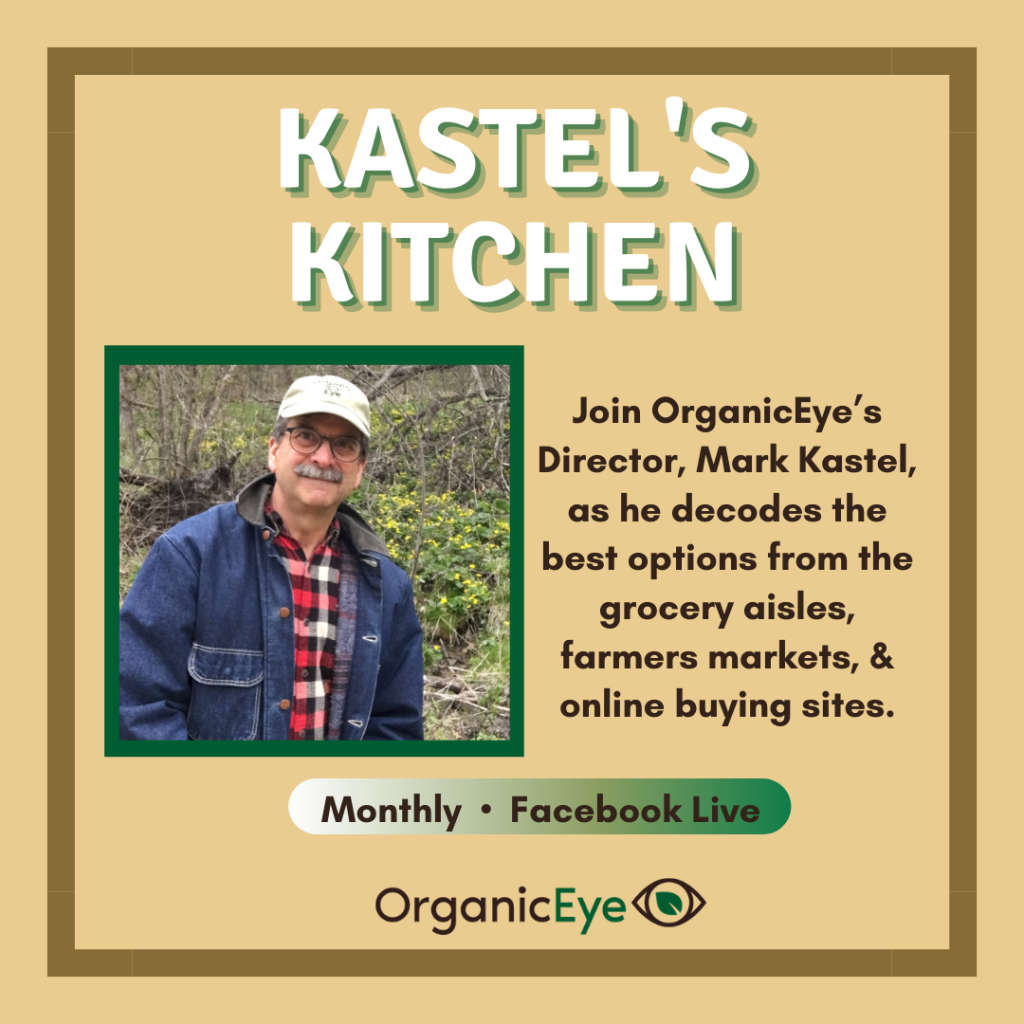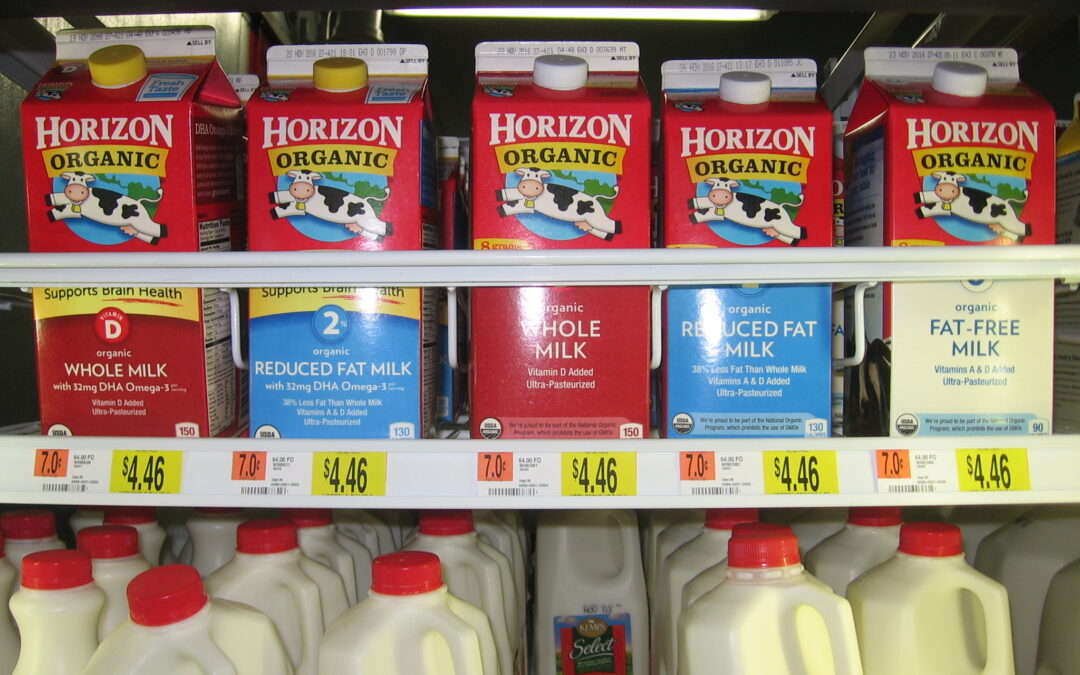Unless you are eating local, fresh, unprocessed, whole organic food, it isn’t enough to just look for the USDA Organic logo—you must become a label reader!
Federal law requires all certified organic products to state which USDA accredited certifier has inspected and overseen the process. The Organic Foods Production Act passed by Congress in 1990 requires there to be one organic standard. But some certifiers are partnering with their agribusiness “clients” to bring you food produced with a conventional model under an organic label.
Who are the heroes and villains in this drama? OrganicEye’s Director, Mark Kastel, helps decode what to look for on organic labels, so you can shop like a pro at your local co-op or supermarket.
Federal law states that organic livestock must be out on pasture every day (with “temporary” exceptions for animal health or to protect the environment). But USDA and certain certifiers are approving factory farms, which are principally confining livestock, as “organic.”
Maintaining or improving fertile soil to ensure superior nutrition in food is a legal prerequisite for organic growers. But again, USDA and certain certifiers think that organic tomatoes, peppers, greens, berries, and other produce can be grown in giant industrial buildings, under near-sterile conditions and artificial light, and in a liquid fertilizer solution instead of organically-managed soil.
Now that corporate agribusinesses own most of the popular organic name brands, many industrial-scale farms and corporations are practicing “organic by substitution.” What to do? Start with the brand (watch the second installment of Kastel’s Kitchen to ID the best in the business under Resources at organiceye.org) and then look to see if the certifier is creditable.
In this episode, Mark illustrates why it’s so important to be a good label reader—and hopefully inspire you to join OrganicEye in their work in Washington and their efforts to reign in the corrupting influence corporations are having on organics.

About Kastel’s Kitchen
Because of lax oversight by USDA, choosing certified organic food is just the first step in ensuring that you’re buying the best products for yourself and your family. In our new series, OrganicEye’s Director, Mark Kastel, will tap his many years of experience in the organic movement to decode the best options from the grocery aisles, farmers markets, and online buying sites.
His perspective is based on over three decades of personal experience as a shopper, gardener, certified organic farmer, and organic business/cooperative consultant, as well as his work as the country’s preeminent organic industry watchdog for the past 16 years.
Mark first came to organics after nearly being disabled from pesticide poisoning. Even though he was already eating a healthy, whole food diet, he credits his move to all-organic—on the recommendation of one of the country’s preeminent environmental allergists—with his recovery. He now enjoys robust health, not only due to avoiding the agrochemical and drug residues often found in conventional food, but because of the exceptional nutrition inherent in true organic production. He has skin in the game and a passion for protecting the authenticity of everyone’s organic food, including his own.

